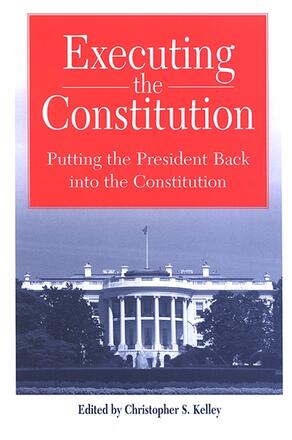
Executing the Constitution
Putting the President Back into the Constitution
Draws attention to how American presidents have creatively interpreted the Constitution to expand the power of the executive branch.
Description
Over the last thirty years, a great deal of attention has been paid to executive branch interpretation of the Constitution. Executing the Constitution focuses on the creative interpretation of constitutional powers to either expand executive branch policymaking or to shield its prerogatives. In analyzing and explaining the bold unilateral decisions presidents have made during and since the Vietnam War, this book draws attention to some dramatic changes in the executive branch that explain the development and use of such concepts as presidential signing statements, administrative clearance, unilateral foreign policy declarations, and executive privilege.
Christopher S. Kelley is Visiting Assistant Professor of Political Science at Miami University.